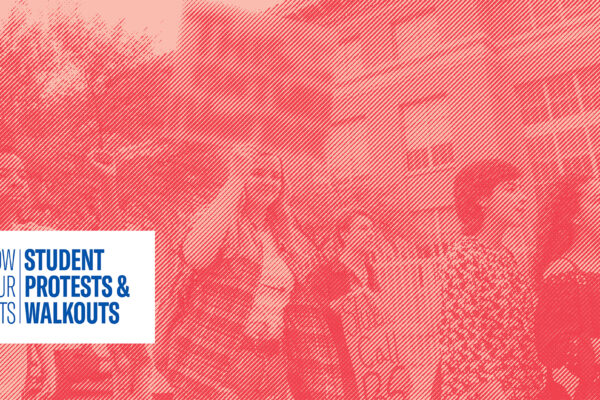What should I do if the school administration threatens to punish any students who participate in an upcoming walkout?
Because the law requires you to attend school, the administration can take corrective action against you for missing school, even if you miss school to participate in a political protest. However, the school cannot punish you for missing school to participate in political protest more harshly than it punishes students for missing school for any other purpose.
For example, you might have to serve detention for missing school to attend a protest if detention is the typical punishment for unexcused absences. You also should be given the same right to make up work as any other student who has an unexcused absence for the particular classes you miss.
What should I do if the school administration threatens to lock or block the school exits to prevent us from walking out of school in protest?
Locking exits to the school can pose serious health and safety concerns for students and staff. In another state, a local fire department responded to teachers' complaints about locked exits by insisting that the administration unlock the exits to avoid a fire hazard. If the school administration threatens to lock students in your school to prevent walkouts, students should immediately notify their parents and the district superintendent's office.
Can I organize a protest at school?
It depends on the specific activities you have planned and when the protest will take place. Remember that your school can adopt reasonable rules which regulate the "time, place, and manner" of exercising your free speech rights. Thus, you cannot organize a protest if it will substantially disrupt the orderly operation of the school or if it will create the immediate danger of causing students to commit an act that is unlawful or in violation of school rules. But you can organize a peaceful, orderly protest at lunch or before/after school, for example.
Am I allowed to express my political views while I am at school?
Yes. The First Amendment of the U.S. Constitution guarantees freedom of speech and freedom of the press to all people, including students. This includes but is not limited to:
- Wearing buttons, badges, and other insignia, including armbands or t-shirts
- Posting notices on school bulletin boards
- Distributing petitions
- Handing out other printed materials, such as leaflets
- Writing in "underground" or unofficial newspapers
Can my school place any limits on my ability to express my political views?
Yes. Even though you have broad rights to express your views in a variety of ways, your school can adopt reasonable rules that regulate the "time, place, and manner" of exercising these free speech rights.
The school is not allowed to prohibit or censor speech or press activities based on its content (what you are saying), unless it falls within one of these two exceptions:
- It is foreseeable that the speech will cause substantial disruption to the operation of the school.
- It is too lewd or vulgar for the school audience.
The law is clear about one thing: outside the classroom itself, school officials cannot just impose their own version of good taste and decency on what students say or write.
Can school officials prevent students from expressing their opinions on a particular topic because they think it is too controversial?
No. School officials may believe that talking about topics like abortion or gun control are too controversial, divisive, or in "bad taste," but they cannot censor those topics unless it also falls within the exceptions above. Even if discussion would provoke strong disagreement or upset some students, school officials cannot censor it.
Stay Informed
Sign up to be the first to hear about how to take action.
By completing this form, I agree to receive occasional emails per the terms of the ACLU’s privacy statement.
By completing this form, I agree to receive occasional emails per the terms of the ACLU’s privacy statement.

